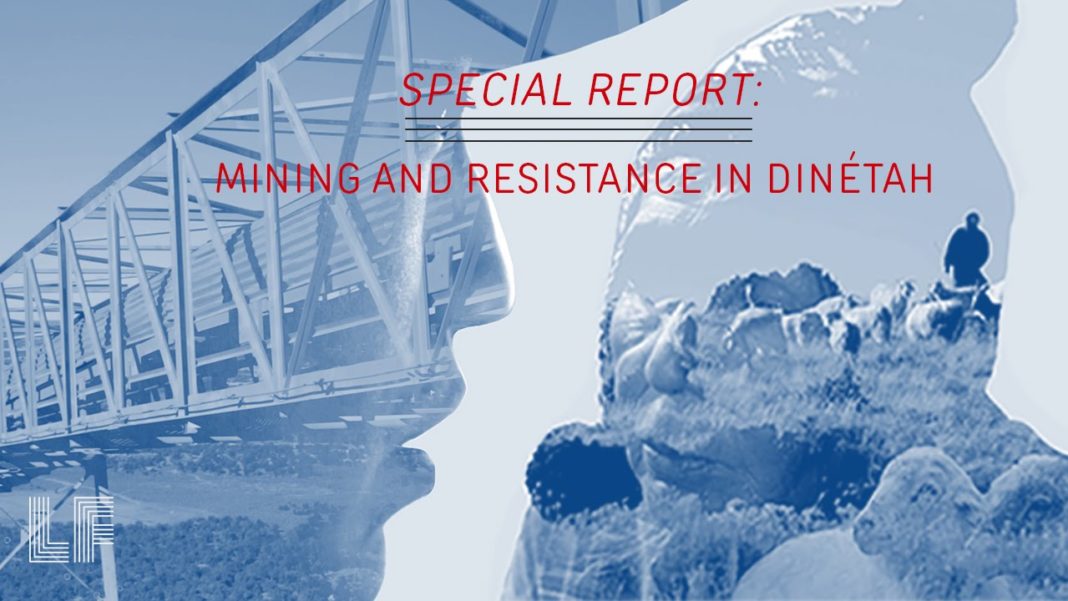A special episode-length documentary filmed on location in Dinétah; the name of the land of the Navajo people, spanning parts of Arizona, New Mexico, Colorado and Utah. 21 Billion tons of coal, the largest deposit in the US with an estimated value of 100 billion dollars, lay untouched in Dinétah until 1966. In that year, Peabody Coal Company leased the land in an agreement with a Hopi tribal council they helped form. In 1974, Congress passed the Navajo-Hopi Land Settlement Act, commonly known as “the relocation law.” It divided about 2 million acres of land previously shared between Diné and Hopi tribes. Nearly overnight, the homes of tens of thousands of Diné and several hundred Hopi were now illegal.
Since then, an estimated 10,000 to 20,000 Diné people have been forcibly relocated. Today, only a small group of mostly elder Diné continue to live here, and those that remain are being pressured to leave. More than 40% of homes here lack running water. Peabody Energy’s two mines here have extracted over 400 million tons of coal and depleted 70 percent of an ancient desert aquifer. Peabody’s Kayenta coal mine fuels the Navajo Generating Station, which is owned by the US Department of the Interior and provides water and electricity to Phoenix, Tucson, Las Vegas and Los Angeles. What is the cost, paid in the lives of the Navajo people, of the water and power delivered to these cities? On the anniversary of the founding of the United States, we visit with Diné (Navajo) youth and elders coming together to fight for the survival of their culture, fighting against displacement caused by US government policy, as well as exploitation caused by mining and other polluting industries.

















